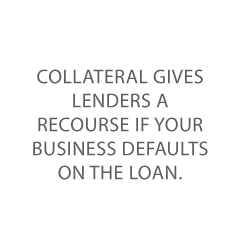If you are thinking about making the leap from side hustle to small business, you are probably wondering how to fund it. Even a side hustle has financing options. Can you get a fast business loan? Is a business loan even the best option for your business at this point?
Funding a Side Hustle Is Hard
A side hustle, by definition, is a business you run on the “side”. That means, you keep your day job. This kind of activity is typically bootstrapped. Often, the funding is with money from your day job. What if it isn’t enough though?
There are other options for funding a side hustle. The options may allow you to grow and expand your business without using personal funds. That is the dream of a lot of small business owners. As a result, many jump on the fast business loan bandwagon.
While there are ways to make that dream come true, fast business loans are not often the way to make it happen. First, they are more likely to be personal loans than fast business loans.
That means, the business owner is solely responsible for repayment and for default. Business loans can work much differently if the business is set up properly. So, what does it take to get the funding you need for your side hustle, and can you really leave the idea of quick business loans behind? Should you?
Challenges to Funding a Side Hustle
There are plenty of challenges when it comes to business funding for a side hustle. One huge challenge is a lack of business credit history. As a result, there is no business credit score or a poor business credit score. That pretty much knocks a business out of the running for traditional fast business loans.
Another challenge is usually a side hustle is not yet set up properly to get business funding. Most business loans look for a Fundable Foundation. This includes a number of things, like getting an EIN and incorporating, that most side hustles do not have.
Foundation. This includes a number of things, like getting an EIN and incorporating, that most side hustles do not have.
Not being set up properly to get funding leads to reliance on personal credit and financial resources. Sometimes this is necessary, but it’s best to avoid it when possible.
There are Options
There are options for getting around each challenge. Credit Suite can offer resources to help you get the funds you need to grow your side hustle into something more.
We can help you get the funding you need now, and guide you step-by-step through the process of setting up in a way that will help you get funding far into the future. Eventually you’ll qualify not only for fast business loans, but for options such as SBA loans, a merchant cash advance, and even a traditional line of credit.
Fast Business Loan From a Traditional Bank
Traditional business loans are hard to get for a side hustle, but not impossible. Yet, approval will likely lean heavily on personal credit. Fast business loans usually have higher interest rates and less favorable terms anyway. This may be even more so when it comes to a side hustle.
The key is to look for business loan programs from non-traditional lenders. Many of these operate online and you can get pretty fast business loans if you qualify. But remember, quick business loans come with a price. Anything fast business related is going to cost you. In the case of business loans, the cost comes in the form of higher interest rates and more personal liability.
Your Personal Credit Will Play a Large Role
For most small business owners, particularly startup owners, personal credit scores will be a vital part of any lender determining if a business should qualify. If you have good credit, getting a business loan, even a fast business loan, will probably not be an issue.
Still, as a business owner, you do not want to rely on personal funds any more than absolutely necessary. What can you do? The key is to build separate credit for your business. As you do, lenders will be able to use it to help make the approval decision when you apply for a business loan.
Keep in mind, when it comes to most business loans, your business credit score will be used with, not instead of, your personal score, in most cases.
Open Your Side Hustle to All Financing Options, Not Just a Fast Business Loan
The truth is, your goal should not always be fast business loans. Fast business loans are great. However, a better goal is to create a situation in which your business qualifies for any funding it needs, when it needs it.
As a side hustle, you are not likely to qualify for merchant cash advances, typical small business loans, and other fast types of financing.
However, you are in the perfect situation to start building Fundability right now, from the beginning. You’ll save yourself a lot of time and money in the long term. Better yet, done correctly, you could never have to worry about fast business loans again.
right now, from the beginning. You’ll save yourself a lot of time and money in the long term. Better yet, done correctly, you could never have to worry about fast business loans again.
Start With a Fundable Foundation
Foundation
This is a must for business funding of any kind, not just fast business loans. Without this, credit providers and lenders will not recognize the business as a separate entity from you, the owner.
That means a lot of things, but a big one is there is likely to be no separate business credit report without a Fundable Foundation. It includes:
Foundation. It includes:
- Business contact information
- An EIN
- Incorporating
- A business bank account
- A D-U-N-S number
- Professional website and email address
Credit Suite Can Help!
We guide you step by step through the process of building a Fundable Foundation. We can help you find vendor accounts that will report. And we can show you how to build business credit in the most efficient way possible.
Foundation. We can help you find vendor accounts that will report. And we can show you how to build business credit in the most efficient way possible.
Funding a side hustle is hard. But there are other options besides personal finances. You may qualify for a fast business loan, but it’s a long shot. If you take in enough credit card payments, a merchant cash advance may work. Most side hustles do not, however.
Credit Suite can help you build Fundability so you can access those options and more. We can help you build a strong business credit portfolio for your small business so you can effectively manage cash flow.
so you can access those options and more. We can help you build a strong business credit portfolio for your small business so you can effectively manage cash flow.
We can help you get funding right now, and help you get set up to qualify for other types of credit in the future, including:
- A business line of credit
- A quick business loan
- Short term business loans
- Invoice financing
- Equipment financing
- and more!
In addition, we can help you find funding that does not require a personal guarantee, and help you determine if and when a personal guarantee may be worth it. In the end, Credit Suite is on a mission to ensure every small business is set to get the funding it needs in the form of small business loans, a line of credit, equipment loans, and whatever else they may need.
Fast Business Loans
Small businesses looking for fast cash may find success getting funding with online lenders. Quick business loans just do not come from traditional banks. Their systems are much different and the application and underwriting process usually takes much longer.
Online lenders however, are often specifically designed for quick business loans. In some cases you can get fast business loan approval and even have funds in as little as a week.
Examples of Online Lenders
There are a lot of lenders out there. Some are great to work with, while others are closer to a scam. Be careful and do your own research. Here are a couple of lenders to get you started if you decide to pursue the fast business loan option.
Fundbox
Fundbox is actually a line of credit rather than a small business loan. Still, it is a great funding option because the requirements for approval are much more manageable that those typical of a regular bank.
What Does Fundbox Offer?
Their process is automated and super-fast. Repayments are automatic. They draft them electronically on a weekly basis. One thing to remember is that you could have a repayment as high as 5 to 7% of the amount you have drawn currently, as the repayment period is comparatively short.
You will have to pay attention and be certain to manage cash flow accordingly so you have enough funds in the account to cover your payment each week.
They want to see at least 3 months in business, $50,000 or more in annual revenue, and a business checking account with a minimum balance of $500.
Upstart
Upstart is an online lender that uses a completely innovative platform for small business loans. The company itself thinks that financial information and FICO on their own may not give the whole picture when it comes to the risk of making a small business loan to a specific borrower.
As a result, they opt instead to use a combination of artificial intelligence (AI) and machine learning to gather alternative data. Then, they use this data to help them make credit decisions.
What Kind of “Alternative Data?”
This alternative data can include such things as mobile phone bills, rent, deposits, withdrawals, and even other information less directly tied to finances. The software they use learns and improves on its own. You can use their online quote tool to play with different amounts and terms to see the various interest rate possibilities.
Note, this is a personal loan. But, if you need funding now and your personal credit is not great, it can be a good option. It’s a start at least.
Retirement Plan Financing
This is an excellent way to get fast business funding for a side hustle. If you have a retirement plan, it may be the best option even. First, it is not a loan. There is no early withdrawal fee or tax penalty.
This Credit Suite program offers a flexible and powerful way to leverage assets that are in a 401(k) plan or IRA.
It really is fast too. In fact, it may take as little as 3 weeks. So while it isn’t a loan, it certainly qualifies as fast business funding. The IRS calls this a Rollover for Business Startups (ROBS).
Tax Repercussions of a ROBs
The IRS considers a ROBS qualified plan to be a separate entity. It has its own set of requirements. Technically, the plan owns the business, not the individual. As a result, some filing exceptions for individuals might not apply to the plan. Still, always check with a tax expert when it comes to tax matters.
How to Qualify
Honestly, it’s not hard to qualify. There is no need to submit financials or have good credit to get approval. In fact, all the lender wants is a copy of your two most recent 401(k) statements. The plan must have a value of more than $35,000 to get approval. You can get up to the amount of your 401(k) that is “rollable.”
It cannot be a plan from a business where you work currently. It has to be from previous employment, and you can’t still be contributing to it.
How Does This Program Work?
It may sound complicated, but Credit Suite business credit experts will help every step of the way. They will help you set up a 401(k) plan in your company. Next, you’ll invest your 401(k) funds in it. Your business then has the cash flow it needs, but no debt. Despite how hard it sounds, your part is fast and easy. We handle the hard stuff.
ROBS vs. a 401K Loan?
First of all,not all plans allow for loans. If your plan does, the IRS will only let you borrow up to 50%, capped at $50,000, before you have to start paying taxes.
Also, with a 401K loan you will pay interest. Of course, you are paying interest to yourself. However, you will be making monthly payments, whereas with the 401K Rollover for Working Capital, there is no payment.
This unique program allows you to tap into your existing retirement account without penalties or taxable distributions. You also avoid loans, banks, or credit checks. There is no debt and no monthly payment.
Credit Line Hybrid
A credit line hybrid is a credit card stacking program that allows for unsecured business funding. It functions much like a line-of-credit. You can draw the cash you need, and repay only what you use.
It allows you to fund your business without putting up collateral, and you only have to use what you need to cover a cash flow gap, purchase supplies, or anything else.
What Are The Qualifications?
You do need good personal credit. Your personal credit score should be at least 68o. In addition, there cannot be any liens, judgments, bankruptcies or late payments on your personal credit report.
If you do not meet all of the requirements, it’s not the end of the story. You can take on a credit partner that meets them. Some business owners work with a friend or relative to fund their business.
It’s really perfect for growing a side hustle, as you can get it without a ton of documents and it’s flexible.
What are the Benefits of a Credit Line Hybrid?
There are many benefits to using a credit line hybrid. First, it is unsecured. There is no need for collateral. Also, the funding is “no-doc.” You do not have to provide any bank statements or financials.
Additionally, often you can get interest rates as low as 0% for the first few months. This allows you to put that savings back into your business.
It is flexible financing that functions much like a revolving credit line. The process is pretty fast. Part of that is due the fact you get qualified experts to walk you through it.
Crowdfunding
What is crowdfunding? It’s actually a pretty common way for small business owners to try to take a side hustle to the next level. You can access tons of investors at once. And, you can test the market at the same time.
How Does It Work?
You market your business on the platform. Anyone who wants can invest in the company. Some platforms accept donations as low as $5 or $10 dollars, though most require more.
With rewards-based crowdfunding, you get some token of thanks for your donation. With equity-based crowdfunding, which almost always requires $500 or more, investors get shares of the company.
Will It Work for You?
It works well for some businesses, but not for every business. In fact, most find that they need to supplement their crowdfunding money with some other form of funding. Since it is debt free cash however, it may be worth considering.
The Dark Side of Crowdfunding
While there are a lot of successful crowdfunding campaigns, the majority are not able to fully fund their business through crowdfunding. According to Startups.com, the average success rate of a campaign is 50%, and 78% of crowdfunding campaigns reach their goal.
That sounds somewhat promising. However, it appears success depends greatly on your market, among other things. Here are a few more statistics from the same study with success broken down by the type of business:
- Business and Entrepreneurship: 41.4%
- Social Causes: 18.9%
- Films and Performing Arts: 12.2%
- Real Estate: 6.2%
- Music and Recording Arts: 4.5%
None of these hit the 50% success rate. If you choose to go this route, be sure you have a backup plan.
Different Types of Crowdfunding
There are actually two types of crowdfunding. There is rewards based crowdfunding and equity crowdfunding. Many see all crowdfunding as a mix between the two. However, they are actually very different.
In fact, while some platforms allow campaigns to do both, many only allow one or the other. It’s important to determine which one will work best for your business before you decide on a platform.
Benefits and Drawbacks of Each Type
The best one for your business will depend on a number of factors. It helps to understand the benefits, as well as the drawbacks, of each option.
Rewards Based Crowdfunding
- Pros
- Debt free
- Do not give up equity in your company
- Relatively easy
- Cons
- Typically raises smaller amounts of money
- Risk lawsuit if do not follow through on promises
- Rewards can get expensive
Equity Crowdfunding
- Easier access to investors
- Faster way to show investors what you’ve got
- Less focus on regulatory compliance and more on getting product or service to the market
- Managing a lot of smaller investors can be harder than managing a few large stakeholders
- May need an investor liaison, which can be costly
- Reporting and auditing requirements can get tricky with a lot of investors
It’s important to note since the topic here is getting a fast business loan, that this is neither a loan or fast funding. It is a way that you can possibly fund a side hustle and grow it into a full fledged business. But, you do not repay funds to investors and it may or may not be fast. With most platforms, though not all, you do not get the funds until you reach your funding goal. There is no way to tell how long that might take.
Credit Suite Can Help You Get Financing
The truth is, you may not really want a fast business loan right now. There are costs and other factors to consider. One of the other options may work better.
In fact, a fast business loan that offers same business day cash in your account is one of the most expensive types available. Instead of a quick business loan, it’s more useful to have flexible financing options in place to use as needed.
When that is the case, you can have access to funds on the same business day without having to worry about a fast business loan. You can bridge a cash flow gap, take advantage of business day payment discounts, and more.
But it takes time. If you are ready to jump now, you want to be able to fund it fast. Is that possible? Is a fast business loan the best way to do it? If you can get on with an online lender, maybe. The Credit Line Hybrid usually works really well too. Of course, if you have a retirement plan, it’s hard to beat a ROBS.
Find out how we can help you qualify for financing, as well as the financing options we offer, now.
The post Get the Perfect Fast Business Loan for Your Side Hustle appeared first on Credit Suite.




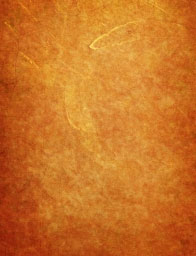
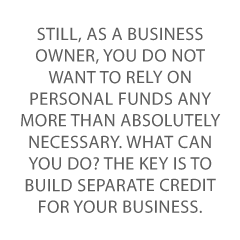
 Foundation. This includes a number of things, like getting an EIN and incorporating, that most side hustles do not have.
Foundation. This includes a number of things, like getting an EIN and incorporating, that most side hustles do not have.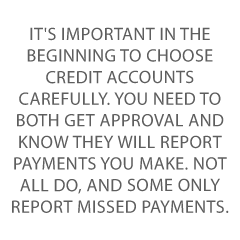

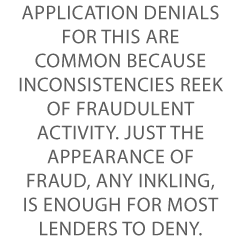
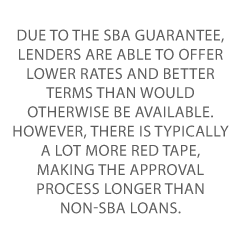
 #1 SBA 7(a) Loans
#1 SBA 7(a) Loans #3 SBA Express
#3 SBA Express
 #5 SBA Microloan Program
#5 SBA Microloan Program
 #7 SBA Export Working Capital
#7 SBA Export Working Capital